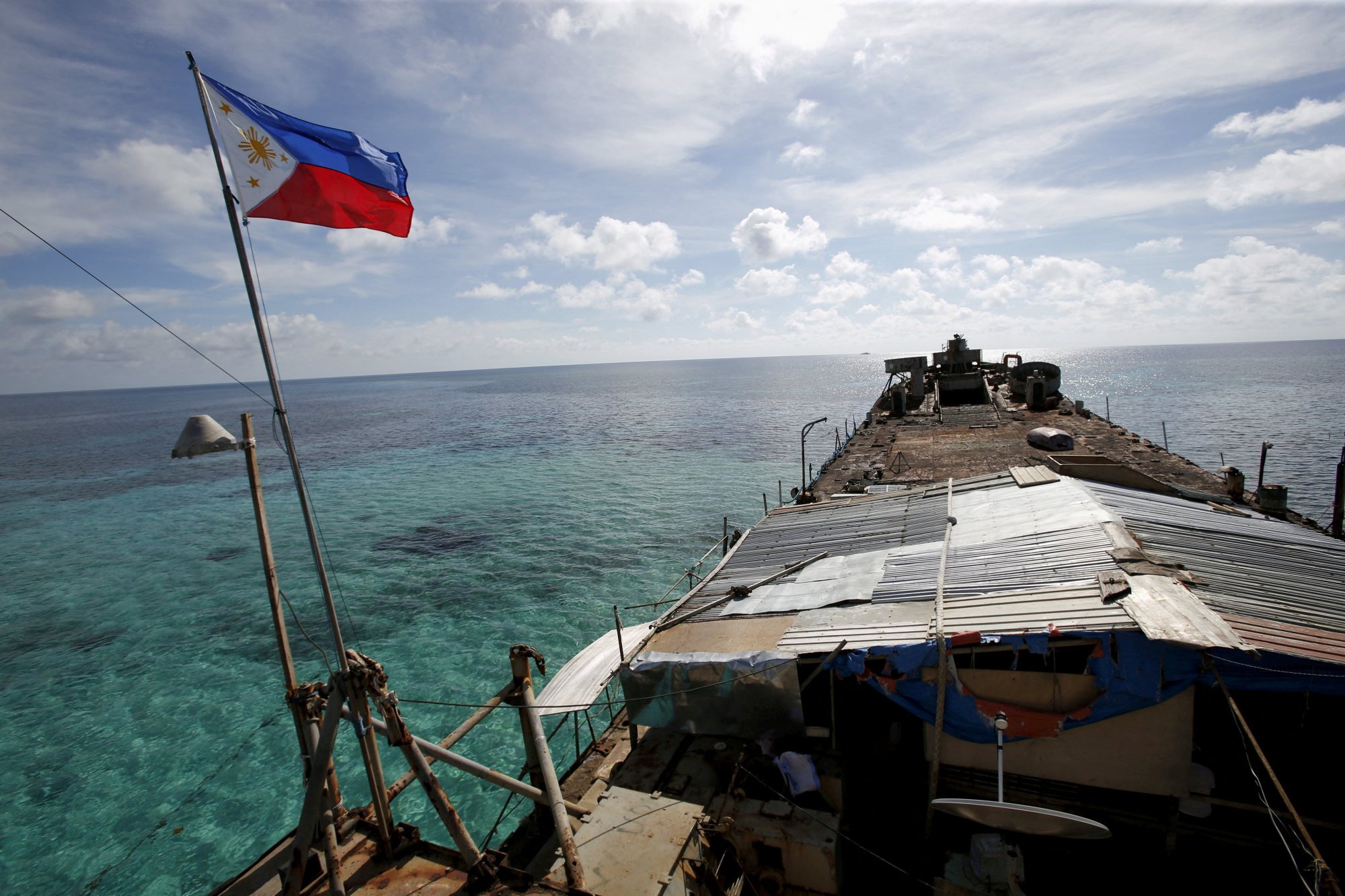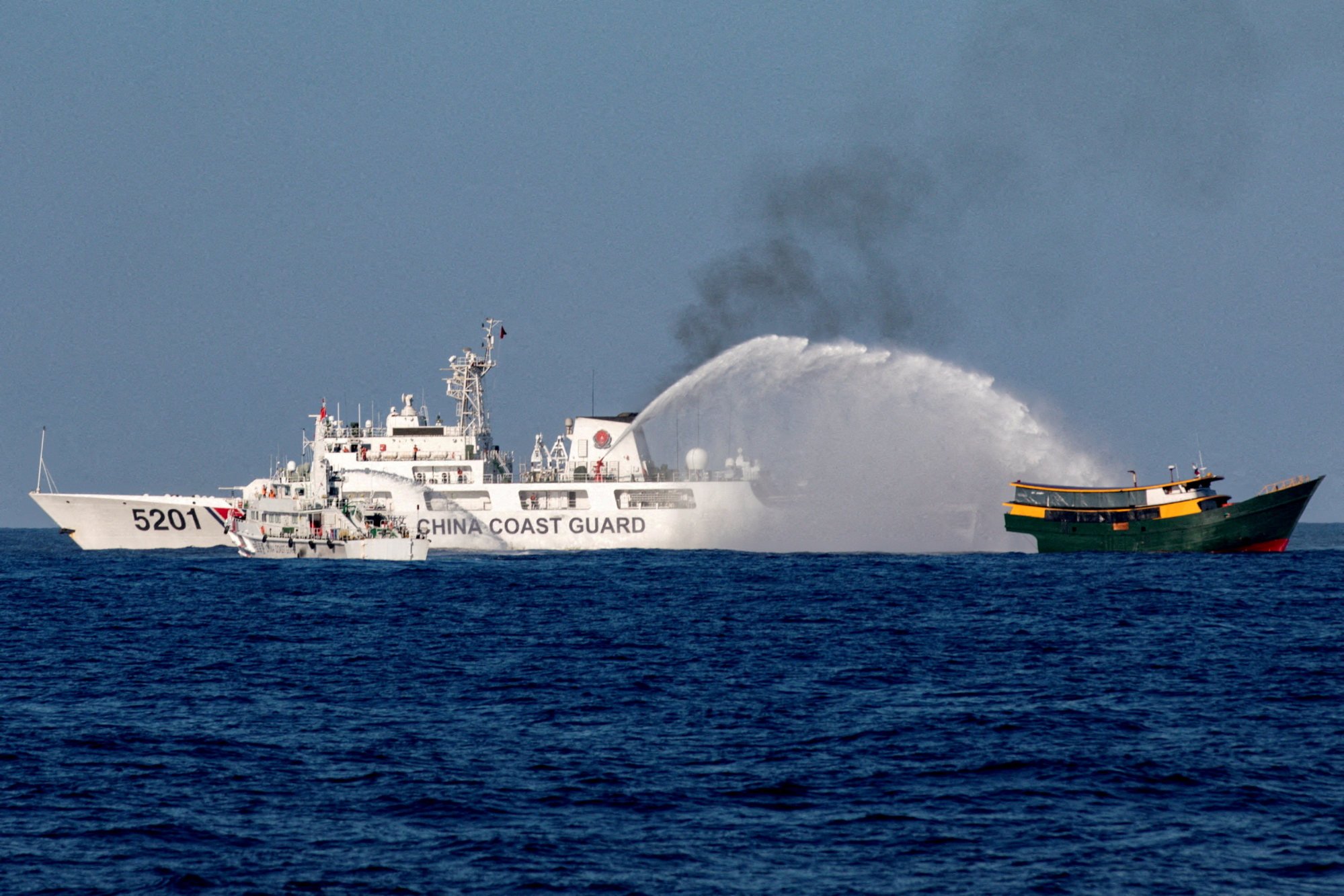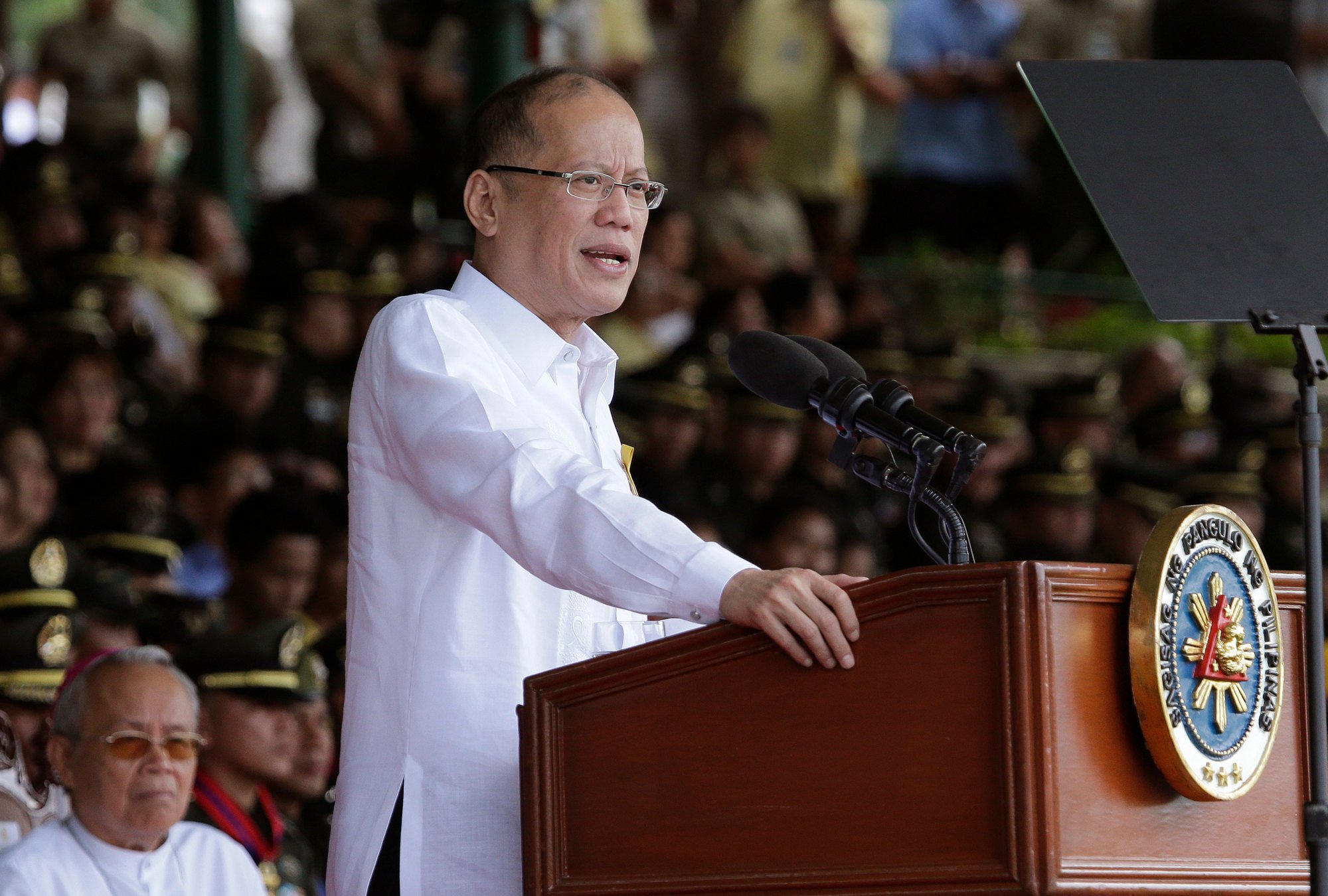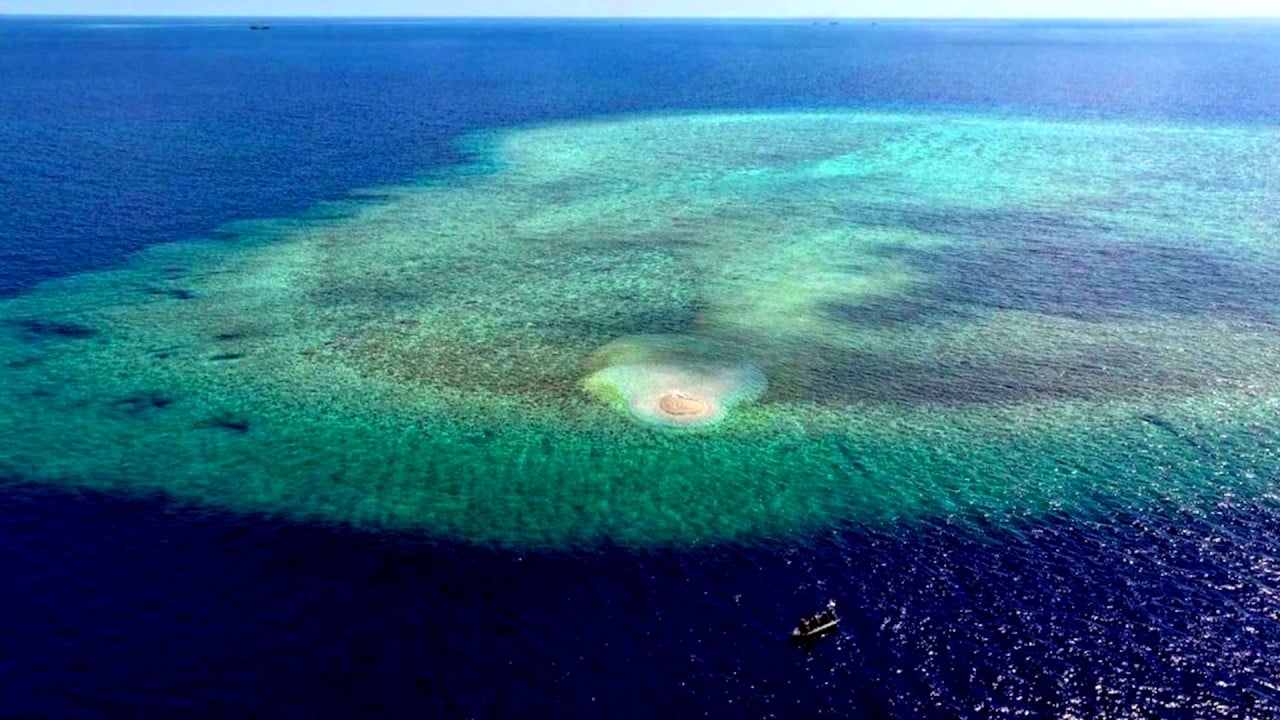
South China Sea: new Philippine claims on alleged Duterte-Xi deal could play into Beijing’s hands, analysts say
- Claims that the alleged deal was already in place before Duterte’s term are meant to shift the blame to former leader Benigno Aquino III, observers say
- Beijing could also insist such a deal has always existed and the Philippines violated it, thereby justifying its actions in the South China Sea, they add
The comments by Salvador Medialdea, Duterte’s former executive secretary, were meant to shift the blame to late leader Benigno Aquino III who could “no longer defend himself”, observers told This Week in Asia, adding that this would allow Beijing to strengthen its claims of a deal being in place.
The alleged agreement would restrict the Philippines’ ability to send repair and construction materials to the BRP Sierra Madre – a World War II era navy vessel grounded on the Second Thomas Shoal in the South China Sea to serve as an outpost to strengthen Manila’s presence in the disputed waters.

Testifying during a hearing of the House Committee on National Defence and Security on Tuesday, Medialdea said he understood “there was a previous commitment that food and water will be allowed to be shipped to the debilitated vessel from 2013”.
He claimed the deal had been agreed to by former defence secretary Voltaire Gazmin and then-Chinese ambassador to the Philippines Ma Keqing. Medialdea suggested this agreement continued during Duterte’s administration out of respect for the previous commitment.
This revelation contradicts statements from former Duterte spokesman Harry Roque, who previously claimed that Manila entered into the “gentleman’s agreement” with China during Duterte’s term.
Ramon Beleno III, head of the political science and history department at Ateneo De Davao University, said Medialdea’s claim could only benefit Beijing.
“My prediction is China will say, ‘You see, there’s really a gentleman agreement. Regardless of who they are talking to, it’s clear there’s an agreement and the Philippines violated it’,” Beleno said.
“They could justify now that’s the reason why the Chinese coastguard was doing the water cannoning. That would be the interpretation of China. China will say, ‘You see, we were correct all along’.”
Beleno further suggested that Medialdea’s accounts might be aimed at protecting Duterte, his political benefactor.
“The general impression right now is really to protect Duterte. But it remains to be seen unless we hear the side of Gazmin,” he said.
Duterte’s former defence secretary, Delfin Lorenzana, was asked during the hearing if the supposed 2013 deal was the agreement the Chinese embassy has been referring to. He said he had not been briefed about any such deal when he assumed office.
“According to the navy, when I talked to them, they were just repairing the sleeping and living areas of the vessel so that they can live comfortably. The repairs continued until I left in 2022. The repairs involved only a small portion of that vessel,” Lorenzana said.
Manila is currently locked in an escalating territorial dispute with Beijing in the South China Sea.
On March 23, three Philippine navy sailors were injured when Chinese coastguard personnel fired water cannons at their vessels while escorting a chartered civilian resupply ship to the Second Thomas Shoal.

Medialdea said he attended two of the official meetings between Duterte and Chinese President Xi Jinping, and no “gentleman’s agreement” took place.
“Former president Duterte, being a lawyer, knew fully well that it was foolhardy to enter into an agreement, especially a ‘gentleman’s agreement’ with the president of the People’s Republic of China on matters involving sovereign rights,” Medialdea said of the August 2019 meeting between Duterte and Xi.
During that meeting, Medialdea said Duterte “asserted the rights of the Philippines over the West Philippine Sea on the basis of the UNCLOS [United Nations Convention on the Law of the Sea] and the arbitral ruling”, after which “President Xi said that they are also claiming the area”.
The West Philippine Sea is Manila’s term for the section of the South China Sea that defines its maritime territory and includes its exclusive economic zone.

But Chester Cabalza, president and founder of the Manila-based think tank International Development and Security Cooperation, rebuked Medialdea for dragging the late Aquino into the controversy.
“The nation must give due respect to the late president Aquino. He is no longer around to defend himself. President Aquino brought about a good legacy by filing a case against China in the arbitral award that the nation is reaping right now on our legal victory,” said Cabalza, a fellow at the US State Department’s Study of the US Institutes on National Security.
“The stability and credibility of our strong narrative in the WPS [West Philippine Sea] begin with our unified story. Medialdea should shut up and become more accountable for his words,” he added.
Cabalza said, however, that China was likely to keep insisting there was a “gentleman’s agreement” regardless of whether the alleged deal actually existed.
“It is implied that this is the truth that Beijing believes so. But this will not stop Manila from protesting [against] China’s aggression and occupation in our maritime entitlements,” he said.
“China is known for changing its imaginary border lines from nine and now to 10-dash lines. That means that China keeps on changing their narratives based on their own national interest,” he added.

